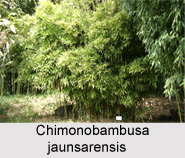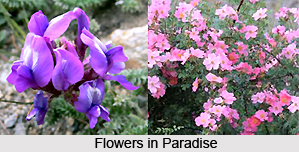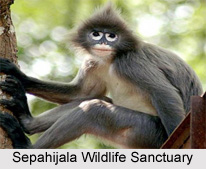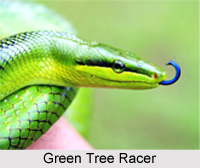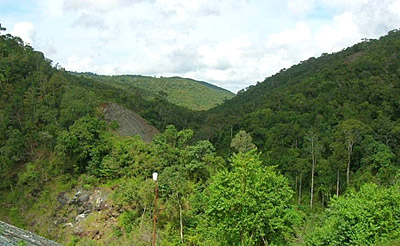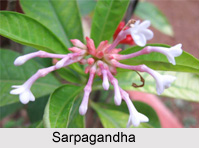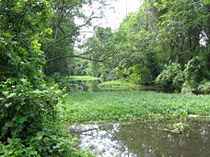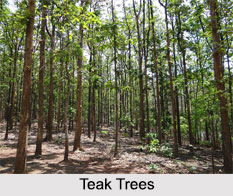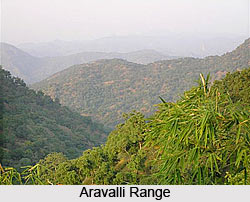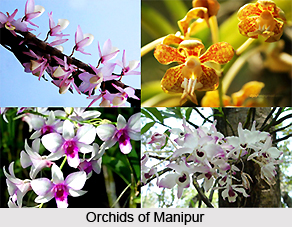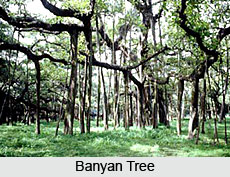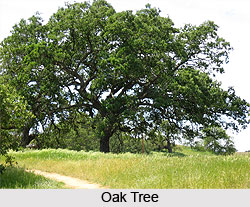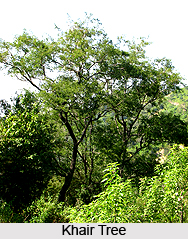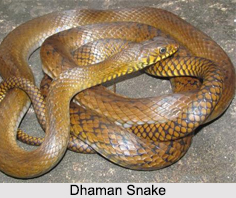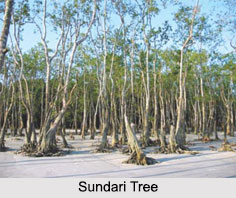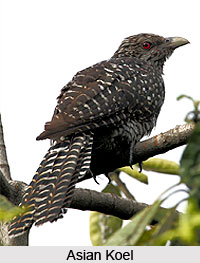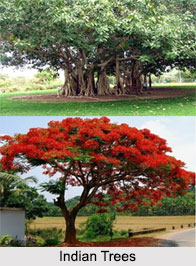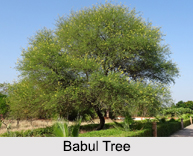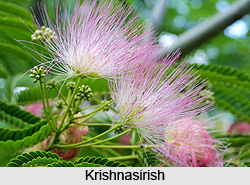 Krishnasirish is an erection bushy tree commonly growing in the roadside throughout the drier regions of southern India up to 900 metre elevation, and in a few localities in Madhya Pradesh, in scrub or dry deciduous forests. Moreover, it is occasionally grown as an avenue tree. The bark of the tree is used for various ailments in Ayurveda. It is an important tree of Rajasthan as it provides fodder for camels and cattle.
Krishnasirish is an erection bushy tree commonly growing in the roadside throughout the drier regions of southern India up to 900 metre elevation, and in a few localities in Madhya Pradesh, in scrub or dry deciduous forests. Moreover, it is occasionally grown as an avenue tree. The bark of the tree is used for various ailments in Ayurveda. It is an important tree of Rajasthan as it provides fodder for camels and cattle.
Characteristic Features of Krishnasirish Tree
Krishnasirish is a small to medium-sized deciduous tree. It can grow to 30 m tall with spreading branches. The leaves are brownish grey, 2.5-4 cm long. Leaves are bipinnate. Flowers are creamy white, refreshingly fragrant and clustered together. Flowers are similar to those of a powder-puff. Fruits are thin, brown, flat, faintly veined, and carry 6-8 seeds. Leaves drop fully by the end of cold weather. However, the seed pods are persistent on the tree. It is a curious sight with no leaves and many hanging light yellow colored pods. New leaves appear in April.
Different Names of Krishnasirish
Krishnasirish or "Oil-Cake Tree" is commonly known as "Krishnasirish" in Bengali, "Motosarsio" in Gujarati, and "Krishnasirisha" in Sanskrit. "Bage", "Vaka", "Siridam", "Sirisamu:" and "Khok" are the names of this plant in Kannada, Malayalam, Tamil, Telugu and Manipuri languages respectively. The botanical name of this plant is "Albizia Amara Boivin". In English this tree has several names such as "Woman"s Tongue", "Lebbek Tree" and "Frywood".
Medicinal Values of Krishnasirish
Using Sirish has been widely recommended to neutralize toxins in the body. The plant possesses anti-allergic, anti-fungal and anti-inflammatory properties that help in treating various ailments. The cut bark of Krishnasirish yields a gum which is cooling, and useful in the treatment of erysipelas, eye diseases, inflammation and ulcers. The leaves are used to treat conjunctivitis. The flowers are considered a cooling medicine and are applied externally to boils, skin eruptions and swellings. The seeds are astringent, and given in the treatment of piles, diarrhoea and gonorrhoea. The oil from the seeds is said to cure leprosy and leucoderma. The dried leaves are sometimes used as a soap substitute for washing hair. It is also used in the treatment of respiratory diseases such as bronchial asthma.
It is also useful in case of poison, edema, urinary retention and inflammation. In addition to that this is also used for the treatment of arthritis and reduces high blood cholesterol. In Ayurveda its use is specially indicated in treating bites and stings from poisonous animals such as snake.
